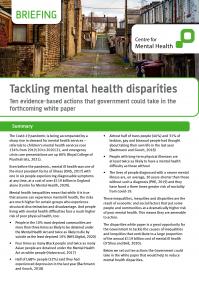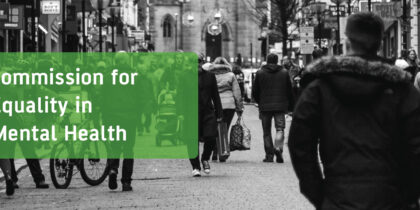Ten evidence-based actions that government could take in the forthcoming white paper
The Covid-19 pandemic is being accompanied by a sharp rise in demand for mental health services. Even before the pandemic, mental ill health was one of the most prevalent forms of illness, with one in six people experiencing diagnosable symptoms at any time, at a cost of over £119 billion in England alone.
Mental health inequalities mean that while it is true that anyone can experience mental ill health, the risks are much higher for certain groups who experience structural discrimination and disadvantage.
Tackling mental health disparities shares ten evidence-based actions that the Government could take in the forthcoming disparities white paper, including:
- Reduce poverty and financial inequality
- Tackle racism
- Ensure people have good housing
- Boost early years mental health support
- Implement a ‘whole school approach’ to mental health
- Fund the Hubs
- Improve working conditions
- Tackle climate change and its impacts on communities
- Close the health gap for people with a mental illness
- Adopt Minimum Unit Pricing on alcohol





